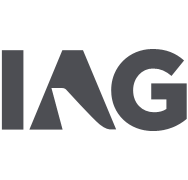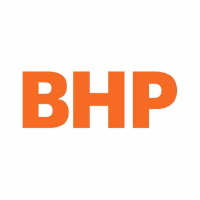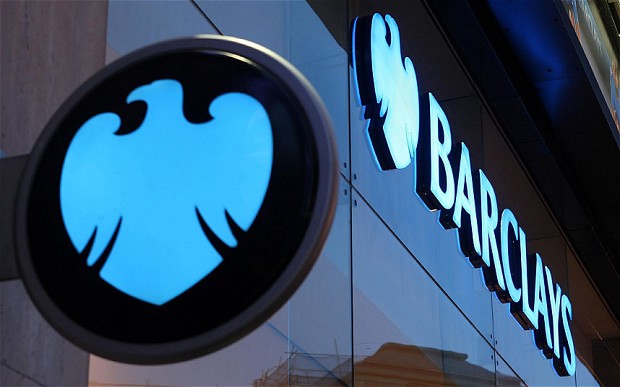London stocks on ther FTSE 100 fell sharply in early trade on Monday as Donald Trump threatened to impose reciprocal tariffs on “all countries”.

At 0845 BST, the FTSE 100 was down 0.8% at 8,587.16.
Speaking to reporters on board Air Force One on Sunday, the US President said that his tariff announcement on 2 April would “start with all countries”.
Susannah Streeter, head of money and markets at Hargreaves Lansdown, said: “The last day of March is spring-loaded with uncertainty on financial markets. Unease about the effect of Trump’s tariffs has been amplified, causing sharp moves at the start of the week.
“London-listed stocks will not be immune to the tariff fall out, with the FTSE 100 set for a difficult start to the week as investors brace for the debilitating effect of widespread tariffs.
“There have been steep falls on indices in Asia as hopes for a more targeted set of fresh duties have evaporated. The President’s comments over the weekend appeared to indicate that blanket new tariffs would be unleashed on Wednesday, a day he’s dubbed ‘Liberation’ day but one which is likely to ensnare many more countries in his punishing trade policies.
“While the implications of his comments are still far from clear, he appears determined to target countries which are competitive in a whole range of sectors, to try spark a revival of home-grown industries.
“But building new manufacturing bases will take years, and much higher costs in the meantime, look set to raise prices and depress economic activity. Concerns about the depth of the tariff plan and the knock-on effects of a potential recession in the world’s largest economy is sparking this fresh round of nervousness, following Friday’s losses on Wall Street.”
In equity markets, heavily-weighted miners were under the cosh, with Glencore, Anglo American, Antofagasta and Rio Tinto among the worst performers.
Associated British Foods was the biggest faller on the FTSE 100, however, as it said that Paul Marchant has resigned as Primark chief executive with immediate effect after a woman made a complaint about his behaviour “in a social environment”.
Group finance director Eoin Tonge will act as Primark CEO on an interim basis. Marchant’s departure follows an investigation, initiated by ABF and carried out by external lawyers. It was not clear whether the complaint was made by a staff member or third party.
Pets at Home tumbled as it said profits were set to fall next year as an uncertain economic backdrop and increased costs take their toll.
In an update for the year to 27 March, the company said group underlying pre-tax profit is expected to be £133m, in line with previous guidance. For FY26, however, underlying pre-tax profit is expected to decline to between £115m and £125m. Broker Shore Capital said consensus expectations were for growth to £142m.
Wood Group tanked after saying it was likely to suspend trading of its shares from the end of April as it needs more time to get its results out. The company said a review identified “material weaknesses and failures” in its “financial culture within the projects business unit and engagement between group finance and projects”.
It also said it expects “material” prior year P&L and balance sheet adjustments for FY22, FY23 and HY24.
On the upside, defensive stocks rallied, with utilities such as Severn Trent, United Utilities and National Grid all higher, and tobacco firms Imperial Brands and British American Tobacco also in the black.
Aston Martin surged to the top of the FTSE 250 as the luxury car maker said that chairman Lawrence Stroll’s Yew Tree Consortium would plough another £52.5m into the company, lifting its stake to around 33%.
Top 10 FTSE 100 Risers
| Sponsored by Plus500 |
|
| # | Name | Change Pct | Change | Cur Price | |
|---|---|---|---|---|---|
| 1 |  |
Imperial Brands Plc | +1.06% | +30.00 | 2,856.00 |
| 2 |  |
British American Tobacco Plc | +1.02% | +32.00 | 3,156.00 |
| 3 |  |
Severn Trent Plc | +0.72% | +18.00 | 2,514.00 |
| 4 |  |
Wheaton Precious Metals Corp. | +0.67% | +40.00 | 6,000.00 |
| 5 |  |
Haleon | +0.54% | +2.10 | 392.00 |
| 6 |  |
Reckitt Benckiser Group Plc | +0.46% | +24.00 | 5,256.00 |
| 7 |  |
Unilever Plc | +0.39% | +18.00 | 4,605.00 |
| 8 |  |
London Stock Exchange Group Plc | +0.22% | +25.00 | 11,555.00 |
| 9 |  |
Relx Plc | +0.13% | +5.00 | 3,892.00 |
| 10 |  |
United Utilities Group Plc | +0.05% | +0.50 | 1,005.00 |
Top 10 FTSE 100 Fallers
| Sponsored by Plus500 |
|
| # | Name | Change Pct | Change | Cur Price | |
|---|---|---|---|---|---|
| 1 |  |
International Consolidated Airlines Group S.a. | -6.02% | -16.80 | 262.50 |
| 2 |  |
Glencore Plc | -4.24% | -12.40 | 280.15 |
| 3 |  |
South32 Limited | -4.23% | -6.80 | 153.90 |
| 4 |  |
Anglo American Plc | -4.19% | -94.50 | 2,159.00 |
| 5 |  |
Rio Tinto Plc | -3.68% | -173.50 | 4,542.50 |
| 6 |  |
Carnival Plc | -3.40% | -47.00 | 1,336.50 |
| 7 |  |
Antofagasta Plc | -3.38% | -58.50 | 1,673.50 |
| 8 |  |
Bhp Group Limited | -3.14% | -59.50 | 1,835.50 |
| 9 |  |
Schroders Plc | -3.13% | -11.20 | 347.00 |
| 10 |  |
Intermediate Capital Group Plc | -3.07% | -62.00 | 1,960.00 |
US close: Stocks hit two-week low on inflation, tariff fears
US stocks dropped sharply on Friday with the S&P 500 hitting its lowest level in two weeks as risk appetite was hammered by an upside surprise to inflation data.
“Oil is down, gold is up and volatility is surging. This is a classic risk-off move that shows how fragile sentiment remains. After a few days of calm on the tariff front, Trump’s auto tariffs have really spooked investors, who are once again slashing equity exposure,” said Chris Beauchamp, chief market analyst at IG.
The Dow finished 1.7% lower at 41,583.90, the Nasdaq sank 2.7% to 17,322.99, while the S&P 500 tumbled 2.0% to 5,580.94 – its lowest close since 13 March.
Auto stocks were continuing to provide a drag on the market a day after Donald Trump slapped a 25% tariff on “all cars that are not made in the United States”.
“Having just announced a 25% import duty on cars and many car parts, US president Donald Trump intends to escalate his trade wars on 2 April (‘liberation day’) by unveiling a wide range of tariffs,” said economists at Berenberg in a note. “Judging by his rhetoric and actions so far, he seems less willing to strike deals and more ready to accept significant damage to the US economy than we had assumed initially.”
Economic data misses the market
Friday’s primary focus was the personal consumption expenditures price index, which revealed the Federal Reserve’s preferred measure of inflation unexpectedly rose in February.
The year-on-year change in the core PCE index, which excludes volatile food and energy items, increased to 2.8% last month, up from 2.7% in January and ahead of economists’ predictions for no change. The monthly change in the core PCE index was 0.4%, picking up from 0.3% and ahead of the 0.3% expected.
Meanwhile, personal incomes rose by 0.8% in February, marking the strongest rate of monthly growth since January 2024. This was up from the revised 0.7% increase registered in January and the 0.4% consensus forecast.
Elsewhere on the macro front, the University of Michigan’s consumer sentiment index was revised lower in March, down from a preliminary reading of 57.9 to 57 – well below February’s 64.7 print and the lowest level since November 2022.
Market movers
Athletic wear business Lululemon dropped 14% after providing weaker-than-expected first-quarter and full-year guidance, blaming a weak consumer environment amid macro and inflation fears.
Others in the sector, such as Footlocker and VF Corp, fell in sympathy, with sentiment also dragged down by fashion conglomerate Oxford Industries missing estimates with full-year forecasts.
Auto stocks including Ford Motor and General Motor were trading firmly in the red, extending losses made on Thursday.
Meanwhile, blue chips were weighing heavily on markets, with Apple, Amazon.com, Tesla, Microsoft and Nvidia all finishing with heavy losses.
Monday newspaper round-up: Scams, Aviva, retailers
Anti-scam campaign groups are calling for police forces to be much tougher on fraudsters, who they claim are scamming millions from victims in “a penalty-free crime”. The pleas are being made just days after the UK government announced it is working on an “expanded” fraud strategy as part of a “robust response” to surging reported fraud rates, which rose by 19% last year according to the Office for National Statistics. – Guardian
France has accused Donald Trump of “interference” after the White House demanded that European companies working with the US government drop diversity schemes. Companies in France and other EU countries have received letters in recent days warning that Mr Trump’s executive order on diversity, equity and inclusion (DEI) schemes applied to companies outside the United States. – Telegraph
Government departments will be asked to fund loss-making projects backed by Rachel Reeves’s National Wealth Fund even as the Chancellor demands deep cuts to Whitehall spending. Treasury documents reveal departments will be asked to pick up the tab for any projects supported by the sovereign wealth fund that are relevant to their brief and “intentionally loss-making”. – Telegraph
Aviva has resurrected controversial plans to cancel £450 million of its preference shares seven years after a prior attempt erupted into a major City row — and has immediately run into renewed opposition. Financial advisers have again hit out at the insurer for potentially forcibly buying in the preference shares from retail investors in spite of their being marketed on the front cover of the original prospectuses as “irredeemable”. – The Times
Retailers’ optimism about their profits and growth for the year ahead has reached a near-decade high amid a sustained revival in business confidence since the October budget, a survey on Monday shows. According to the Lloyds Business Barometer, confidence among retailers leapt to its highest level since August 2015 in March. The bank’s sentiment index for the sector rose by seven points to 58 per cent, much higher than the overall business confidence reading of 49 per cent, which was still a seven-month high and unchanged from the previous month. – The Times


 Hot Features
Hot Features














